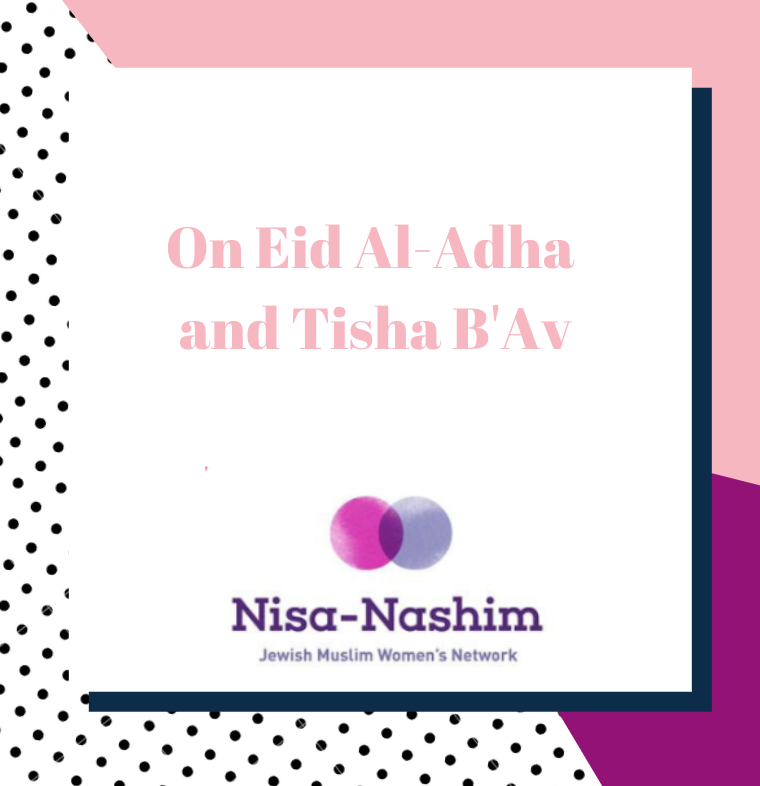Yesterday marked both the start of the Islamic holiday Eid al-Adha and the Jewish fast day of Tisha B’Av. Two very important dates in the Jewish and Muslim Calendar fell on the same day, reminding us that we have to be closer than ever, especially in these days of division.
Eid al-Adha is a very special day of celebration for Muslims worldwide and it coincides with the completion of the Hajj, which millions of people partake in every year. Known as the “festival of sacrifice”, the observance commemorates the prophet Ibrahim’s readiness to sacrifice his son in order to demonstrate his dedication to God. As Eid al-Adha commemorates the sacrifice made by the prophet Ibrahim, Muslims typically celebrate the festival by carrying out a Qurbani, a “sacrifice” in Arabic. The animal that is sacrificed – which is usually a goat, sheep, cow or camel – is separated into three parts and at least one third of the meat from the animal must go to poor or vulnerable people. During the morning of Eid al-Adha, a special prayer called Salat al-Eid is recited in honour of the festival, ahead of the Dhuhr prayer at noon. Muslims traditionally dress in fine clothes in celebration of Eid al-Adha, in addition to exchanging gifts and eating savoury food.
Tisha B’Av on the other end, is the saddest day in the Jewish calendar. It marks the anniversary of numerous disasters and tragedies that have befallen the Jewish people throughout history, most notably the destruction of the 1st and 2nd Temples in Jerusalem, in 587 BCE and 70 CE respectively. It is one of only two fasts in the Jewish calendar that lasts for 25 hours, beginning at sunset and ending at nightfall the following day (the other being Yom Kippur, the Day of Atonement). The 9th of Av this year fell out on Saturday the 10th August but, as fasting is not permissible on Shabbat other than for Yom Kippur, it was observed the following day instead.
The time prior to this day is known as the 3 weeks and it starts with the fast on the 17th of the Hebrew month of Tammuz, when the siege of Jerusalem began. It intensifies during the last 9 days, until we reach the 9th of Av, the day the ancient Temple fell. The whole period is somber, and it is customary not to hold weddings during this time. On the day of Tisha B’av itself, in addition to not eating or drinking (observed by Jewish adults over the age of bar and batmitzvah), there are also prohibitions against wearing leather shoes (in strictly Orthodox areas you will see a lot of people in trainers and plimsoles!), washing and bathing, marital relations and application of perfume and makeup. The idea is not to distract oneself from the sadness of the day, and not to do any activities that would lead to enjoyment or happiness. The book of Eicha (Lamentations) is read in synagogue on the night of Tisha B’av, and liturgical prayers called Kinnot, recalling the various tragedies of the day, are recited in synagogue in the morning.

